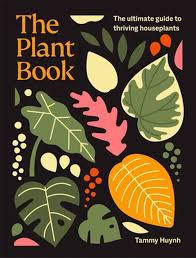Knife by Salman Rushdie
- NZ Booklovers

- May 29, 2024
- 2 min read

Salman Rushdie's Knife is an intense memoir. At points it becomes almost unbearable. The book lays bare the physical and psychological aftermath of the despicable attack he suffered on August 12, 2022. Through raw honesty, Rushdie invites readers into the most intimate spaces of his recovery, chronicling the incredible levels of pain, the relentless nightmares, and the profound questions that haunted him in the wake of the heinous act of violence.
At its core, Knife constantly struggles with the very question Rushdie poses in an imagined conversation with his would-be murderer: Does the saying “What doesn’t kill us makes us stronger” really ring true? This doubt permeates the narrative as Rushdie fearlessly confronts the fragility of life and the ways in which trauma can ruin one's sense of self and security.
Rushdie's prose is straightforward, as always demonstrating his signature lyricism for a clarity of imagery, almost clinical recounting of the medical procedures, the bodily functions, and the relentless physical challenges he faced. He holds nothing back, describing in excruciating detail the fluid in his lungs, his grotesquely swollen eye, and the sudden lump in his prostate – details that forge an intimacy with the reader, inviting us to bear witness to the depths of his suffering.
Yet, amidst the anguish, Rushdie's indomitable spirit shines through. His trademark wit and wordplay surface in unexpected moments, offering glimpses of levity and reminding us of the resilience of the human spirit. He considers love, vulnerability, and the "impossible lightness of being," ruminating on the profound existential questions that his ordeal has forced him to confront.
In the final chapter, "Closure?," the question mark speaks volumes. Rushdie acknowledges that while he has written this book as a form of catharsis, a means of reclaiming control over his narrative, there will always be a "wounded cloud" in his skyline, a lingering shadow cast by the trauma he has endured.
Perhaps most significantly, Rushdie ponders the impact of this event on his writing, wondering, "How will this affect your writing? It will affect the way my writing is read. Or not read. Or both." It is a sobering reflection on the ways in which violence and intolerance threaten not only the physical safety of writers but also the very act of creative expression itself.
Knife is a testament to the power of art and the human spirit. In the face of hatred and violence, Rushdie has chosen to meet it "with art," crafting a memoir that is at once a fever dream and a coolly collected examination of the aftermath of tragedy. It is a challenging, remarkable, and ultimately life-affirming work that reminds us of the enduring importance of cultural courage and the right to speak truth to power, no matter the cost.
Reviewer: Chris Reed
Penguin



